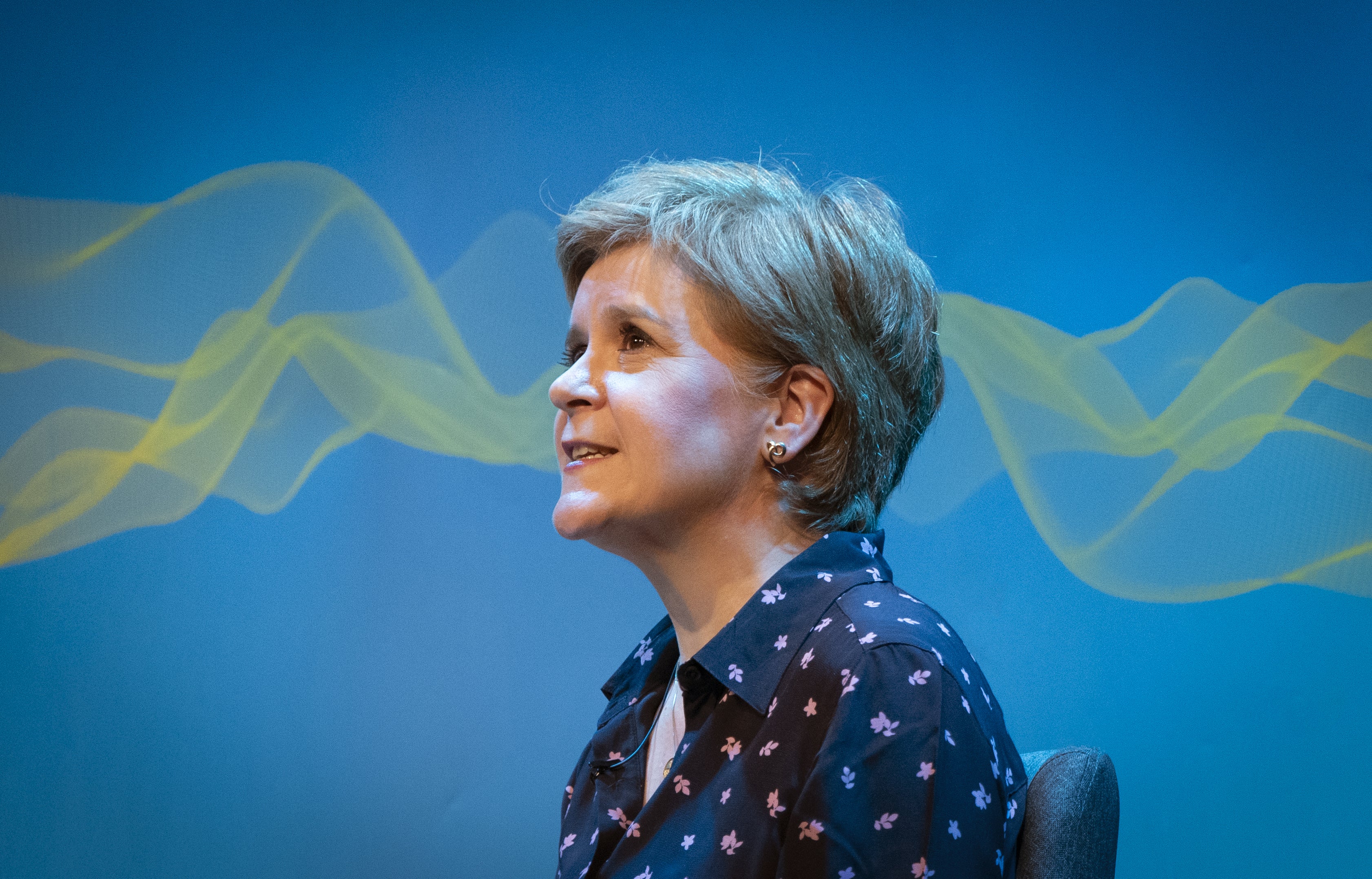Sturgeon: Scotland will vote Yes to independence by comfortable margin
The First Minister also discussed post-independence energy prices and trade with the rest of the UK.

Your support helps us to tell the story
From reproductive rights to climate change to Big Tech, The Independent is on the ground when the story is developing. Whether it's investigating the financials of Elon Musk's pro-Trump PAC or producing our latest documentary, 'The A Word', which shines a light on the American women fighting for reproductive rights, we know how important it is to parse out the facts from the messaging.
At such a critical moment in US history, we need reporters on the ground. Your donation allows us to keep sending journalists to speak to both sides of the story.
The Independent is trusted by Americans across the entire political spectrum. And unlike many other quality news outlets, we choose not to lock Americans out of our reporting and analysis with paywalls. We believe quality journalism should be available to everyone, paid for by those who can afford it.
Your support makes all the difference.Nicola Sturgeon has said she believes Scotland will vote Yes to independence by a “comfortable margin”, when asked about her plans for a second referendum.
The First Minister also discussed post-independence energy prices and trade with the rest of the UK as she was interviewed at an Edinburgh Fringe show.
The Scottish Government has referred its plans to hold a second referendum on independence to the Supreme Court, amid a dispute with the UK Government over the jurisdiction of the legislation.
During the Fringe show on Wednesday, LBC’s Iain Dale said current polling suggests a Yes vote would be unlikely to be a “massive majority”.
He asked Ms Sturgeon how she would react if a future prime minister said they would allow an independence vote but attached a 60% threshold for the constitutional change to take place.
Ms Sturgeon responded: “The international norms about referendums is that it’s about majorities.
“That’s basically how a Scottish referendum should be conducted as well.
“What I’m about to say will be put to the test.
“When Scotland comes to make this choice again, I don’t think it will be narrow.
“I think Scotland will vote to be independent and I think it will do so by quite a comfortable margin.”
Discussing energy prices, Ms Sturgeon said the No campaign had warned in 2014 that bills would go up in the event of a Yes vote.
She said: “We’re paying a massive price right now for not being independent.
“Independence is not a guarantee of sunny uplands for Scotland, but it puts control of our future and the decisions that shape our future into our own hands.”
Mr Dale then asked: “Are you seriously saying that energy prices would be cheaper if Scotland was independent?”
Ms Sturgeon replied: “That’s not the point I’m making, that’s not the argument I was making.
“We could go into a debate about Scotland, the renewable energy capital of Europe…”
Mr Dale then said the SNP had pledged five years ago to create a nationalised energy company which would sell power to customers at almost cost price. He asked: “What’s happened to that?”
Ms Sturgeon said the pandemic had impacted on that plan, adding: “We are absolutely still looking to make changes that will allow Scotland – much better than we do right now – to benefit from the vast renewable energy potential we’ve got.”
The First Minister was also asked about her Government’s plans for how trade would operate across the border with the rest of the UK following independence.
She said: “My argument incidentally is not that these practical issues won’t exist, it is that we will be able to deal with them with proper planning.
“If we do the proper planning, we will be able to deal with these issues in a way that doesn’t impede trade.”
She pointed to the border between Norway and Sweden as an example of how such arrangements could be managed.